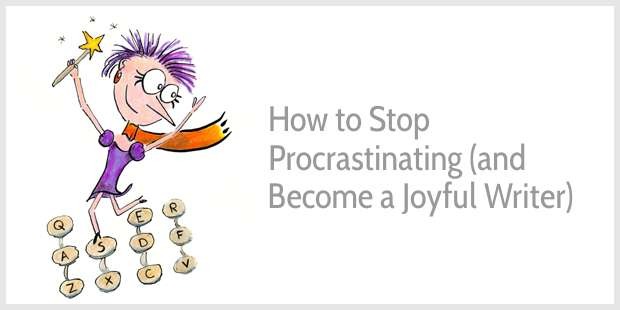How to thwart procrastination and start writing freely
Heed this timeless advice to get unstuck and start splashing ideas onto the page.

Everyone who writes for a living knows all too well how nefarious procrastination is.
Every day is a battle of will:
- “I’m going to finish my story. But lemme just see what all the “Squid Game” fuss is about first.”
- “I have got to complete that presentation for my boss. I just have to vacuum the entire house real quick.”
- “Sheesh, my deadline is 1 p.m. today. Oh, I don’t like how that tree is leaning; let’s go chainsaw that badboy first.”
You know the struggle is real.
Of course, remote work adds another wrinkle to the mix. How can we stay on task with unlimited distractions at our fingertips—and without the added pressure of pretending like we’re dutifully working all day in our little cubicles amid a thicket of colleagues?
Henneke Duistermaat has smart answers and ideas. To consistently defeat procrastination, she offers these practical tips:
Practice getting started.
No excuses. Just get words onto the page. She suggests these tips to ease the process:
- Break the writing process into chunks.
- Set small goals that are easy to meet and exceed.
- Build a bridge to tomorrow to give yourself a head start for your next writing session.
Avoid mid-writing distractions.
Avoid going down rabbit holes while writing.
Wow, did you know that White Rabbit from “Alice in Wonderland” was voiced by Bill Thompson, who also gave life to Mr. Smee in “Peter Pan”—which ranks 36th as the highest-grossing animated film of all time, just ahead of “The Rugrats Movie”?
Shoot, what were we talking about again?
Face your inner monsters.
As Duistermaat writes, “Procrastination often leads to feelings of guilt and frustration.” However, “beating ourselves up is futile” and counterproductive, so don’t do that.
Instead, confront those negative, energy guzzling feelings head on—and tell them where to shove it. Better yet, devise ways of combating your unique procrastination triggers and finding ways to forge ahead when the ideas refuse to flow freely.
Duistermaat says that once you get a better grasp of why you tend to procrastinate—whether it’s due to doubts or feeling overwhelmed—you can develop tactics to “sneak around” whatever tends to slow your sentence-building stride.
That way, you’ll be well equipped to handle any bumps in the road you encounter and gain the confidence you’ll need to keep the fount of ideas pouring forth. Whenever you do run dry or get distracted, remember these wise words Duistermaat closes with:
“No matter how hard or wonky the writing process sometimes is, there is inherent joy in creating something that didn’t exist before.”
Read the rest of Enchanting Marketing’s guidance here.







